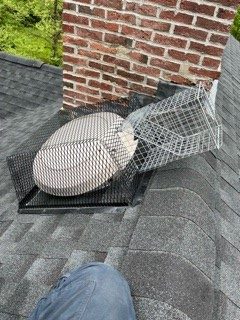Raccoons live throughout Massachusetts except for Nantucket in a variety of habitats including residential and urban areas. Food sources and den sites attract raccoons to your property. By removing food sources and limiting access to denning sites, you can prevent a raccoon problem in Boston.
What Damage Can Raccoons Cause?
Naturally, den sites for raccoons include hollow trees, rock crevices, and abandoned woodchuck burrows. Attics, chimneys, and crawlspace share similar characteristics of an ideal raccoon den.
A homeowner in Boston noticed strange sounds like thumping and growling in their attic. After a full home inspection, we found evidence of a raccoon.
In addition to noises, certain types of damage to the interior and exterior of your home are a clear sign of a raccoon problem.
Raccoon Damage in Attic
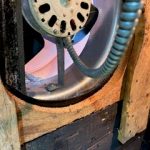
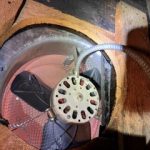
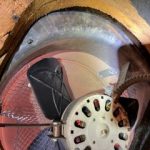
Raccoon destroyed the screen covered the exhaust fan.
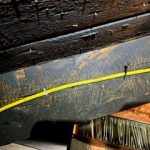
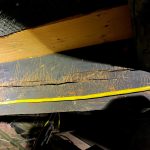
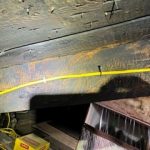
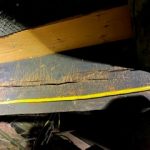
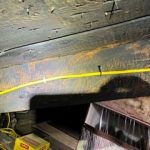
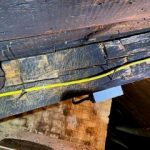
We found scratch marks on rafters from raccoon claws.
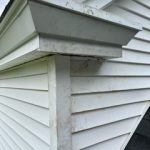
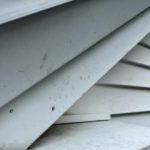
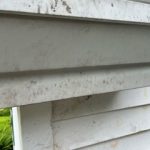
Raccoon paw prints and tracks covering house siding.
How Do I Get Rid of a Raccoon?
Our recommendations to get rid of a raccoon includes:
- Raccoon Removal– In this situation, we set a cage trap next to the entrance by the fan. We install an exhaust cap around the roof vent to prevent the raccoon from avoiding the cage trap.
- Exclusion Repair– Once the raccoon was removed, we sealed all current and potential entry points. Typical full home exclusion repair includes vents, roof returns, gable vents, soffit openings, and chimneys.
- Clean up– Removal of droppings and or soiled insulation
- Sanitization and Ectoparasite treatment– Treating the area where the animal was present to kill and prevent viruses, bacteria, and insects brought in by the animal
Can I DIY Raccoon Removal?
Resourceful and intelligent, it is hard to trap a raccoon. If you do manage to trap a raccoon, you need a plan to legally and properly release the trapped animal.
Raccoons can be aggressive, especially when cornered or young are present. If bit or scratched, a raccoon can spread diseases such as rabies, parvovirus, and distemper virus.
A raccoon denning in your attic has likely established a latrine site. Raccoon poop can carry Baylisascaris procyonis, (raccoon roundworm) an intestinal parasite. Baylisascaris procyonis is thought to pose the greatest risk to people because of the often close association of raccoons to human dwellings. Safe removal and proper destruction of raccoon feces is essential to protect your family.
Why Should I Hire a Wildlife Removal Expert?
The wildlife experts at Trutech can safely and humanely solve your nuisance wildlife problem, protect your home from future pest animals, and restore your house to its previous condition.
During an inspection we look for all signs of a raccoon including juveniles. In this case, we did not find any evidence of juvenile raccoons.
The damaged roof vent allowed the raccoon to enter the attic. We installed a new exhaust cap with an attached raccoon trap. After we removed the trapped raccoon, we repaired the exhaust fan and install caps over all the vents. We cleaned up the raccoon latrine site and applied sanitization and ecoparasite treatments.
